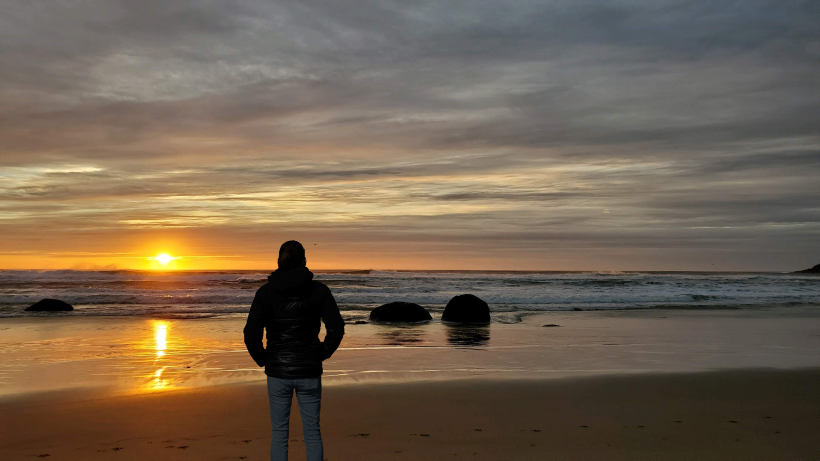I often find myself trying to answer the question, “How does my individual act actually make a difference?” I’m not talking about whether my smile impacts someone else’s day. We already know kindness is contagious, and we’ve seen the stories of kindness that spread, like paying it forward in the coffee line (though not necessarily a great example because of the complicated work it makes for the baristas).

I ask this question more about the small acts that we put toward really big problems. Does my small contribution do anything? Whether it’s a donation to a fundraiser, or biking to work instead of driving, these things have minimal impact on my daily life, so how in the grand scheme of the universe does my little action make a difference? On the one hand, I know enough to realize that I’m not doing it alone, and when enough people join forces, real change can happen. On the other hand, why do these little steps feel so inconsequential?
It turns out that this dichotomy between tiny modifications and giant changes we hope to see is as old as the Torah itself. Parshat Vayeshev has us in the thick of the Joseph story. Joseph has two dreams that he shares with his brothers, both of which make them angry with him. The brothers go out to pasture, Joseph finds them, the brothers decide to sell him, and their father Jacob mourns the loss of his favorite son. After this, the story takes a turn to focus on Joseph’s brother Judah and the betrayal of Tamar before turning back to Joseph’s life in Egypt, which ultimately lands him in jail.
As the brothers are figuring out what to do with Joseph, the little snit who made them angry, they come up with a variety of ideas. Kill him? Leave him? Hide him? Judah and Reuben are the two brothers who are the most vocal against killing Joseph, Reuben in the background and Judah in the forefront. Reuben suggests that they throw Joseph in the pit, Judah suggests that they sell him to others, and in the end, a little bit of both happens.
Later, Reuben wonders and even despairs that despite his best efforts, Joseph may have died anyway. He goes back to the pit to check on his brother only to find him gone. His real concern for his brother and his fear that he didn’t do enough are very human reactions. However, his suggestion of throwing him in a pit without shedding his blood likely saved Joseph’s life, as strange as that may sound. Often we despair that the tiny work we might try to do is not enough to make any significant difference, but we rarely know which of those decisions will end up being the one that changes history.
– Rabbi Eve Posen
Source: What Difference Does It Make? – Parshat Vayeshev 5784



